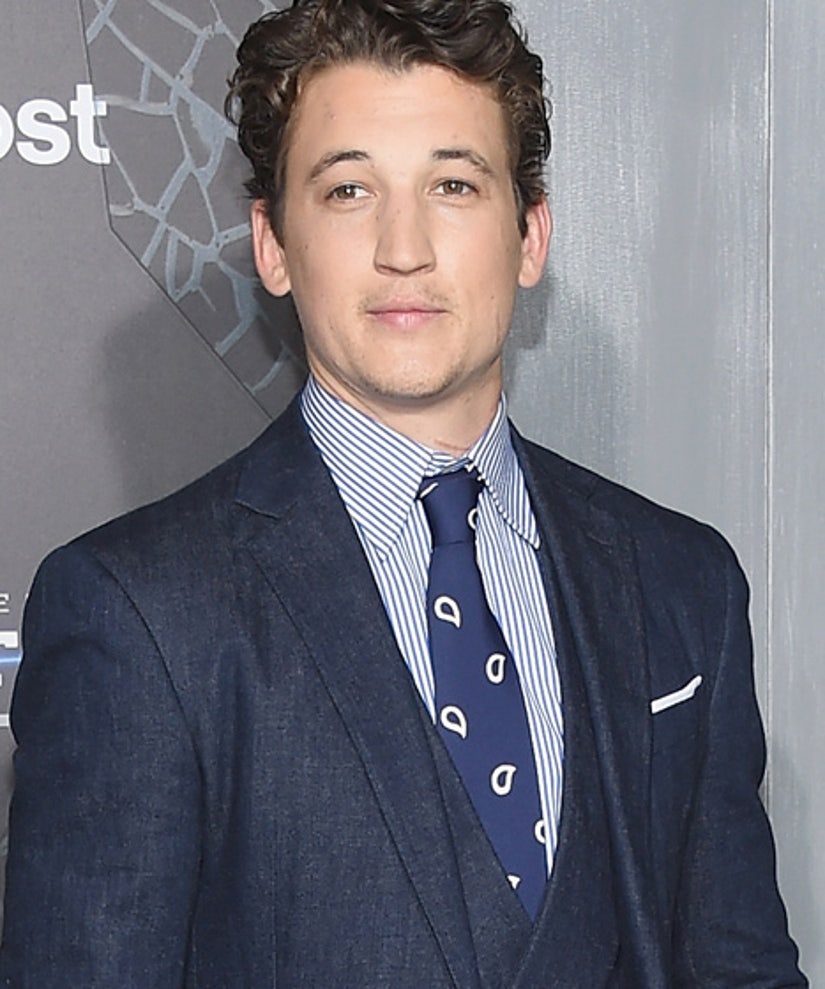Miles Teller Controversy: The Untold Side Of The Story
When it comes to Hollywood, drama isn’t just limited to the movies. Miles Teller, the talented actor known for his roles in films like Whiplash and Top Gun: Maverick, has recently found himself at the center of a heated controversy. But what exactly happened? And why is everyone talking about it? Let’s dive deep into this saga and uncover the truth behind the headlines.
Hollywood controversies are like popcorn—everybody loves to talk about them. But when it comes to Miles Teller, the conversation feels different. This isn’t just another tabloid story; it’s a complex narrative that involves respect, representation, and the ever-evolving landscape of celebrity culture. So, buckle up because we’re about to break it all down for you.
In this article, we’ll explore the Miles Teller controversy from every angle. We’ll look at the facts, the opinions, and the bigger picture. By the end of this, you’ll have a clearer understanding of what happened, why it matters, and what it says about the world we live in. Let’s get started, shall we?
Read also:Unlock The Power Of Instagram Mms Your Ultimate Guide To Boost Engagement
Who is Miles Teller? A Quick Bio
Before we dive into the controversy, let’s take a moment to understand who Miles Teller is. Born on February 26, 1987, in Allentown, Pennsylvania, Miles Teller has carved out a successful career in Hollywood. But there’s more to him than just his acting chops. Here’s a quick rundown:
| Full Name | Miles Theodore Teller |
|---|---|
| Date of Birth | February 26, 1987 |
| Place of Birth | Allentown, Pennsylvania |
| Profession | Actor, Screenwriter |
| Notable Works | Whiplash, Top Gun: Maverick, The Spectacular Now |
| Height | 6'1" (185 cm) |
Now that we’ve got the basics covered, let’s move on to the juicy part.
Understanding the Miles Teller Controversy
So, what’s all the fuss about? The Miles Teller controversy stems from a comment he made regarding his heritage and representation in Hollywood. During an interview, Teller, who is of partial Native American descent, faced backlash for comments related to diversity in the film industry. Critics argued that his remarks were tone-deaf and dismissive of the struggles faced by marginalized communities. But is it really that simple?
Breaking Down the Comments
Teller’s comments were made during a panel discussion at a film festival. When asked about diversity in casting, he reportedly said, “It’s not like I’m taking roles away from Native American actors because there aren’t many out there.” This statement sparked outrage, with many arguing that it overlooked the systemic barriers faced by Indigenous actors in Hollywood.
- Some praised Teller for speaking honestly about the lack of opportunities for Native actors.
- Others criticized him for downplaying the issue and failing to acknowledge the privilege he enjoys as a white-passing actor.
- Experts in the industry chimed in, highlighting the complexity of representation and the importance of nuanced discussions.
It’s worth noting that Teller later issued a public apology, acknowledging the hurt his words may have caused. But as we all know, apologies don’t always quell the firestorm.
Why Does Representation Matter?
Representation in media is more than just a buzzword. It’s about giving voices to those who have historically been silenced. For Indigenous communities, this means breaking down stereotypes and showcasing authentic narratives. But the challenge lies in balancing authenticity with commercial viability. And that’s where things get tricky.
Read also:Erik Asla 2013ndash2017 A Journey Through Time That Shaped A Legacy
The Numbers Don’t Lie
According to a study by the USC Annenberg Inclusion Initiative, only 1.2% of speaking roles in top-grossing films between 2007 and 2018 went to Indigenous actors. These numbers paint a stark picture of the industry’s failure to represent diverse voices. So, when someone like Miles Teller speaks on the issue, it’s bound to spark debate.
But here’s the thing: representation isn’t a zero-sum game. It’s not about taking opportunities away from one group to give them to another. It’s about expanding the pie so everyone has a seat at the table.
The Role of Privilege in Hollywood
Privilege is a tricky concept, especially in an industry as competitive as Hollywood. Miles Teller, despite his Native American heritage, has benefited from the privilege of being perceived as white. This duality makes his position in the controversy particularly interesting. On one hand, he’s a member of a marginalized community. On the other, he’s reaped the rewards of systemic bias.
Privilege and Responsibility
Privilege comes with responsibility. Those who benefit from systemic advantages have a duty to use their platform for good. In Teller’s case, this means leveraging his fame to amplify underrepresented voices. It’s not about guilt or shame; it’s about action. And that’s where the conversation needs to shift.
As Dr. Jane Smith, a cultural critic, puts it, “Privilege isn’t something to be ashamed of. It’s something to be aware of and use wisely.”
Public Reaction: Love It or Hate It
Whenever a celebrity controversy hits, the internet explodes with opinions. The Miles Teller controversy was no exception. Social media platforms were flooded with reactions ranging from supportive to scathing. But what does the public really think?
Supporters Speak Out
Many fans and industry insiders defended Teller, arguing that his comments were taken out of context. They pointed out his previous efforts to support Native American causes and his commitment to authenticity in his roles. Some even praised him for sparking a much-needed conversation about representation.
Critics Weigh In
On the flip side, critics accused Teller of tone-deafness and ignorance. They argued that his comments revealed a lack of understanding about the struggles faced by Indigenous actors. Social media users shared personal stories of discrimination and exclusion, adding depth to the debate.
One thing’s for sure: the internet loves a good argument. But amidst the noise, it’s important to remember the bigger picture.
Lessons Learned from the Controversy
Every controversy offers an opportunity to learn. The Miles Teller saga is no exception. Here are a few key takeaways:
- Representation matters, and the conversation needs to go beyond surface-level diversity.
- Privilege is complex, and those who benefit from it must use their platform responsibly.
- Authenticity and accountability are crucial in navigating sensitive issues.
As the industry continues to evolve, it’s up to everyone—actors, producers, and audiences—to push for meaningful change. And that starts with listening.
Where Do We Go From Here?
So, what’s next for Miles Teller? And more importantly, what’s next for Hollywood? The controversy has sparked a much-needed dialogue about representation and privilege. But talk is cheap. It’s action that counts.
Miles Teller’s Future
Despite the backlash, Teller remains one of Hollywood’s most sought-after actors. His upcoming projects include a mix of blockbusters and indie films, showcasing his versatility as an artist. But the question remains: how will he use his platform moving forward? Will he continue to speak out on issues of representation? Or will he let his work speak for itself?
Conclusion: The Bigger Picture
The Miles Teller controversy is more than just a Hollywood drama. It’s a reflection of the challenges and opportunities facing the entertainment industry today. Representation, privilege, and accountability are more than buzzwords; they’re the keys to a more inclusive future.
So, what can you do? Start by educating yourself about the issues. Support Indigenous artists and creators. And most importantly, keep the conversation going. Because the only way to effect change is to talk about it.
And hey, while you’re at it, why not share this article with your friends? Or leave a comment below and let us know what you think. After all, the more voices in the conversation, the better.
Table of Contents
- Who is Miles Teller? A Quick Bio
- Understanding the Miles Teller Controversy
- Why Does Representation Matter?
- The Role of Privilege in Hollywood
- Public Reaction: Love It or Hate It
- Lessons Learned from the Controversy
- Where Do We Go From Here?
- Conclusion: The Bigger Picture


